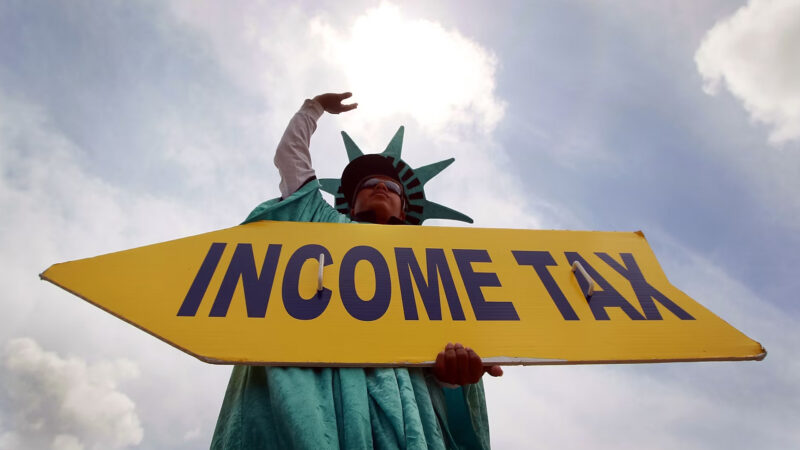In the Media
THE NEW REPUBLIC: The IRS Finally Cracked the Code on Making Tax Season Suck Less
04. 08. 2024
The Inflation Reduction Act created a pilot program that’s finally given Americans a free and easy way to file their federal taxes.

This article was originally published by The New Republic.
Advocates now have their eyes set on not just making sure the pilot doesn’t disappear but expanding as far as possible. “Direct File ought to be expanded over a period of a couple years to most situations,” said Adam Ruben, vice president of campaigns and political strategy at the Economic Security Project.
One immediate goal for advocates is not just to expand the number of states where Direct File is available but also to incorporate the integration available in Arizona, Massachusetts, and New York to others so that state returns are prepopulated. Two different versions of that integration software were built for this season, which means state systems that operate differently will be able to choose the one that works best. For some states it “is not much more than flipping a switch,” Ruben said. For others, such as California, which has its own unique platform, it will take more work.
Next, Ruben wants to see Direct File expanded to include people with 1099 forms for gig work or side jobs. Eventually, he thinks it could cover the most common situations. TurboTax, after all, is able to tackle any tax situation with its online software.
Ultimately, the goal is not only a filing system that is simple and free, but one where the IRS does most of the work. Economists have found that even with just the information the agency already has on its own it could successfully fully prepopulate about half of all Americans’ returns, and for the rest of taxpayers, the majority would need to make just one change to finish their return. “It’s very clear the IRS could do most people’s taxes,” said Vanessa Williamson, a senior fellow at the Urban-Brookings Tax Policy Center. Treasury Secretary Janet Yellen has already said she hopes future versions of Direct File will include information from W2s.
“In the long run, we want to see all states, all common tax situations, and really robust prepopulation,” Ruben said. That would include filling forms out not just with information the IRS already has but with information from other government agencies as well, such as the Social Security Administration. As in many other countries, that would mean most American taxpayers could simply check to make sure their return looked correct and sign off on it; anyone who wanted to add more information for credits or deductions would be free to do so. “There’s really no reason why we should put taxpayers through this annual exercise of, ‘Better make sure you do this right because we’ll check your math on the back end,’” said Igor Volsky, campaign director of Better IRS.
The Economic Security Project has estimated that Direct File could cover most tax situations in all states, integrate with state filing, and offer “significant” prepopulation within five years. At that point, the organization projects that it would save Americans $8 billion a year in filing fees and $3 billion worth of time saved. It could deliver billions of unclaimed tax credits, such as the Earned Income Tax Credit and Child Tax Credit, to families that are currently eligible but don’t claim them.
The program would also save the government money. The IRS could save $300 million, the organization estimates, by reducing the time it takes to handle paper returns and resolve errors.